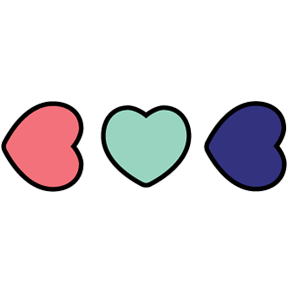The question “who am I” is the second most googled question in 2020 that starts with “who”, according to Keywordtool. This is a question that nearly every person grapples with at some point. How does a person know who they are? You’re told to “be yourself”, “be true to yourself”, “be YOU.” But what does that mean? What makes you different from me?
Very few people choose their identities. The truth is that we are influenced by the dominant culture, and we internalize the values of our parents. We begin to define ourselves according to the culture and world we grow up in. Identity is fluid and should be seen as an ever-changing, an ever expanding aspect of one’s self.
Think of the last time you filled out forms about yourself…
maybe at a doctors office or for school or work. Oftentimes there are questions like: gender, race, ethnicity, spiritual/religious beliefs, language, socioeconomic status, sexual orientation. All of these questions are gathered to help the provider make assumptions about your beliefs. How a person identifies themselves is typically closely associated with the cultural values and beliefs.
People often define themselves by how they feel their parents view them. If someone is viewed as capable and strong through their parents’ eyes, often this is what they will believe themselves to be. If they perceive themselves to be worthless through their parents’ eyes, they will view themselves as worthless.
For one to find out who they really are, they must be self-reflective and understand their beliefs for themselves. One must wrestle with the difficult questions in life about values.
Questions like:
What are my ethics?
What are my goals?
What are my morals?
What are my beliefs?
What is my faith?
What is my attitude?
Depending on your answers to those questions, you will begin to understand who you are and live your life accordingly. For instance, if I consider myself to be involved in sustainability efforts for the earth, I am not going to go on a backpacking trip and leave garbage all over the wilderness.
Sometimes the values we were taught don’t align with our true or authentic self. In these situations, people often land in a state of anxiety and/or depression. When this occurs, one must reconcile what is their perceived identity and what is one’s authentic self.
To do this, the first step is exploring and developing your talents and passions. Each person is born with traits, talents, and potentials to be discovered and expanding in this life.
To begin exploring, ask yourself the following questions:
When am I the happiest?
What brings me joy?
When have I felt at peace with myself?
When have I felt at peace in my interactions with others?
The answers to these questions are what make each of us individuals. Give yourself space and time to discover your passions and values in life. People are most happy when their true self is attuned with their daily actions.


